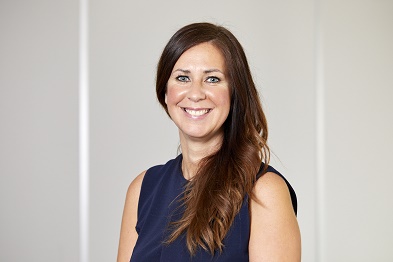
A key ambition for my new role as the first Legal & General mortgage club female director is to highlight the challenges faced by working women and foster a more understanding community that encourages and supports them.
As part of this, I was delighted to recently bring together a group of inspiring women from across the mortgage industry to celebrate the social, economic, and cultural achievements of women in our sector and beyond. It was simply amazing to hear how this talented cohort fought to reach their current positions, tackling gender stereotypes, unpaid labour, and gender pay gaps in their way.
The discussion highlighted that while great progress has been made in some senses (and this should not be glossed over), there are still many age-old issues negatively impacting women working across various sectors and levels of seniority.
Celebrating hard-fought wins
To my point on celebrating historical progress, it is worth reflecting on the seismic changes that have helped modern working women. Having worked in the mortgage industry for twenty years, I find it particularly interesting to look at the property rights held by women throughout time. It wasn’t until 1926 that women were allowed to hold and dispose of property on the same terms as men, but even so, we have all heard many horror stories of women being denied mortgages in the 1970s on unjust grounds, or only granted with signatures of male guarantors.
Compare this to today, where it is estimated that women own 33% of mortgaged UK property, and the progress is clear to see. We have come such an incredible way and will be forever indebted to those who fought on our behalf many years before.
‘Mum guilt’ remains a huge challenge for working women
While we have made great strides in terms of legislation then, gender norms still lag. ‘Mum guilt’ – the feeling that you are somehow failing your children by attending to other priorities – is a huge issue that many women unfortunately join me in experiencing, particularly when leading busy and high-pressure careers. I have worked full-time for twenty years now, and I still feel a huge pang of guilt when I miss one of my children’s sports days or school plays to attend an important meeting.
There is no doubt that this stems from the expectation of women to be the primary caregivers, supporting both children and elderly relatives as part of the ‘sandwich generation’. Legal & General’s latest ‘Deadline to Breadline’ research highlights the economic impact of this gender norm, finding that 31% of working women are engaged in part-time work, compared to just 11% of working men, often conceding the additional time to unpaid domestic labour. Until we can dismiss this outdated gender norm, women will not reach their full potential in the workplace.
Flexible working holds huge potential
One development that gives me huge hope for the future is the growing popularity and acceptance of flexible working. The pandemic showed us that people can work just as effectively from home as in the office – if not more so – which has proved a huge help to working parents. The other forms of flexible working are less well-known but arguably equally as useful, including job-sharing, compressed hours, ‘flexitime’, and term-time-only working.
In December, the government also confirmed its intention to introduce changes to the right to request flexible working (which currently supports employees with twenty-six weeks’ continuous service). Raising awareness of the range of flexible working options available and reassuring those considering them that they will not negatively impact their progression opportunities should be a key priority for those in human resources and leadership roles looking to improve workplace inclusion. I am hopeful that flexible working becoming a mainstream option should help the many women who feel that they have to leave their jobs or reduce their hours after having children.
Related to this is the cost of childcare, which again makes a return to work unviable for many parents. I was therefore very pleased to see an extension to the provision of free childcare included in the Spring Budget. With the cost of childcare in the UK among the most expensive in the world, according to the Organisation for Economic Cooperation and Development, it is no surprise that 32,000 women left the workforce last year to care for their children full-time (Office for National Statistics). This is another great stride that should be welcomed as part of our support for working women.
Words to take forward
It was so inspiring to hear from many incredible friends and colleagues at the event, and their words have really stuck with me. Further to the points just raised, we also spoke about the need for open conversations around issues such as menopause, and the need to build a supportive community for women to speak openly in male-dominated industries such as ours.
It is so important that issues impacting gender equality in the workplace, such as equal maternity and paternity leave, menopause support, and flexible working, are kept high on the agenda all year round. International Women’s Day is a wonderful starting point, but it is best used as a springboard for further conversation throughout the year. It is anything but a tick box exercise.
Clare Beardmore is director of Legal & General Mortgage Club



